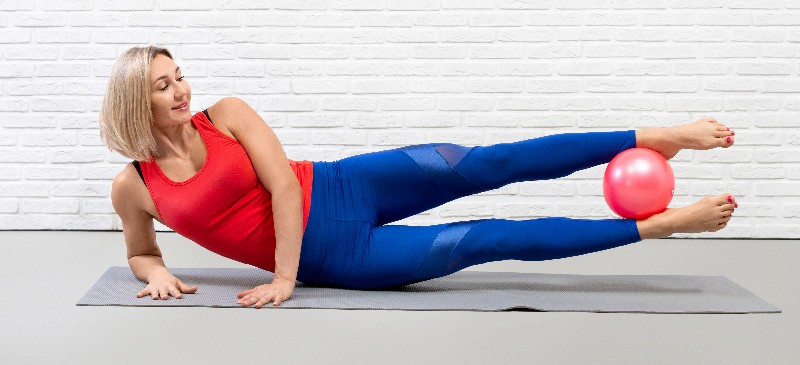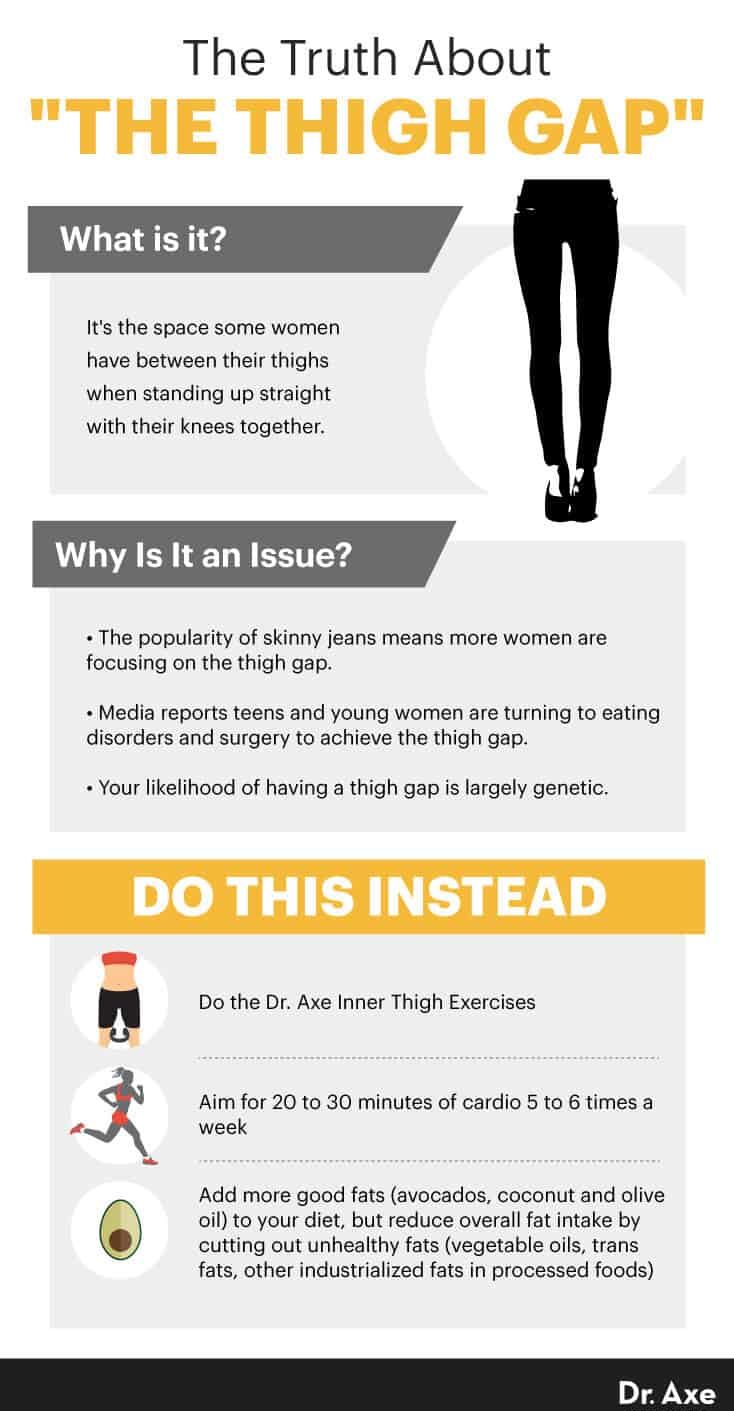This Dr. Axe content is medically reviewed or fact checked to ensure factually accurate information.
With strict editorial sourcing guidelines, we only link to academic research institutions, reputable media sites and, when research is available, medically peer-reviewed studies. Note that the numbers in parentheses (1, 2, etc.) are clickable links to these studies.
The information in our articles is NOT intended to replace a one-on-one relationship with a qualified health care professional and is not intended as medical advice.
This article is based on scientific evidence, written by experts and fact checked by our trained editorial staff. Note that the numbers in parentheses (1, 2, etc.) are clickable links to medically peer-reviewed studies.
Our team includes licensed nutritionists and dietitians, certified health education specialists, as well as certified strength and conditioning specialists, personal trainers and corrective exercise specialists. Our team aims to be not only thorough with its research, but also objective and unbiased.
The information in our articles is NOT intended to replace a one-on-one relationship with a qualified health care professional and is not intended as medical advice.
Inner Thigh Workout: Best Exercises & Tips
January 25, 2024

Inner thigh fat is a common concern among women, and many wonder what inner thigh exercises and inner thigh workout programs are out there to work on this common trouble area. Thinner thighs may be on your mind, too, thanks in part to the continual popularity of skinny jeans.
This fashion trend continues to ignite the appeal of smaller thighs, sometimes in an unhealthy way. I’m talking specifically about the focus on the thigh gap, the space some women have between the inner thighs when standing with their knees touching.
Unfortunately, some women are overtraining — going far beyond cardio workouts and inner thigh workouts to achieve the sought-after look. Media reports remind us that teens and young women sometimes go to extremes, like eating disorders and surgery, to achieve the thigh gap.
Sure, there are some benefits of having smaller thighs. Healthy body-fat loss can make crossing your legs more comfortable, in addition to increasing your confidence when wearing tighter clothing.
But other than preventing chafing, having a thigh gap is not of major importance. In fact, most body types don’t allow for a thigh gap. That’s mostly genetic.
The great news is getting rid of excess body fat does provide you with a fitter, healthier body. Exercise is a great way to cut unhealthy body fat and tone your thighs, particularly these inner thigh exercises designed to work on healthier, fitter thighs. Start your inner thigh workout today!
What Are the Inner Thigh Muscles?
The thigh is made up of several muscle groups that all work together with your hip and lower leg to produce movement. Because all muscles groups are connected by nerves, blood vessels and connective tissues called fascia, they’re used in conjunction to help you move through your daily activities. For example, if one part of your thigh is weak or damaged, it could impact how your hip flexors, torso, shoulders and lower legs move.
Your thigh muscles are connected by layers of fascia that connect to the muscles in your hip, back and lower leg. These muscles work with the hip to produce your ability to walk, run, climb, and stabilize your leg and pelvis when you stand and move. Thigh muscles also work together to provide power, strength and speed when you perform certain activities, like kicking a ball or lifting something from a squat position.
The thighs are made up of four different muscle groups:
- The quadriceps are made up of four primary muscles that are located on the front of your thighs.
- The hamstrings are made up of three primary muscles and found on the back of the thighs.
- The adductors include two primary muscles and make up the inner thighs.
- The abductors consist of two primary muscles located on the outer thighs and butt.
To get the best inner thigh workout, it’s important to target all of these muscle groups. You can focus on these muscles three to four days per week, preferably skipping a day before you do the inner thigh workout again so you provide enough muscle recovery time for your thigh muscles.
Keep in mind that spot training can help, but it needs to be combined with some cardio and a healthy diet to be effective.
Truth About the Thigh Gap
Having a thigh gap has become synonymous with being skinny and fit. Sadly, it’s also become synonymous with eating disorders.
Proof of the craze is apparent if you track what people are looking for online: The phrase “thigh gap workout” is a highly searched term. To be clear, just because someone has a thigh gap doesn’t mean that person has an eating disorder, but it’s equally important to understand that natural thigh gaps are most often genetic.
The structure of your bones and body shape determine whether it’s even physically possible to have a thigh gap. The width of your hips and the angle of your pelvic bones are traits that affect the shape of the thighs. This occurs regardless of the fat you may have on your body.
It makes sense that people with narrower pelvises may have more closely set leg bones. This would close the gap — something that cannot be changed with diet and exercise.
Another factor determining the space between the thighs is your body type. If you’re someone who struggles to gain weight, then you likely have a larger gap between the thighs compared to someone with a higher body fat-to-muscle ratio.
Though many people make unhealthy choices to acquire a thigh gap, such as surgery or eating disorders like anorexia or bulimia nervosa, the best thing you can do is to commit to a consistent exercise routine, including inner thigh exercises, combined with a healthy diet.
Remember that thigh gaps are just a trend. There isn’t a specific thigh gap workout, but it’s completely possible to have a great workout for thinner thighs that will produce results.
You just need to focus on being healthy and staying fit, and you will have great thighs and a healthy figure.
Best Inner Thigh Workout
To get the best inner thigh muscles, aim for 20 to 30 minutes of cardio five to six times per week, combined with this great inner thigh workout routine. You can also try incorporating some leg workouts for women or butt workouts to mix things up.
Do the following inner thigh workout exercise circuit for one minute per exercise for a total of three to four rounds. Rest for 15 seconds between each exercise and for one minute between each round to get the most out of this inner thigh workout.
1. Leg Lifts With Stability Ball
Lie on your side on the floor. If this is uncomfortable, bend your bottom elbow, and rest your head on your hand.
Place a large exercise ball in between your feet, and slowly lift the ball up toward the ceiling using only your hips and butt. Return to the start position without touching the floor with your feet. That makes one repetition.
Once you have completed one minute on one side, switch to the other side.
2. Sumo Squat
To perform the sumo squat, stand with your feet wide apart and toes pointed out at about 10 and 2 o’clock. This exercise can be done with or without weights.
Regardless, hold your weight (or just your hands) in front of you at about chin level. Maintain good form by keeping your upper body in an upright position. Abs are tight.
Bend at the knees, pushing your butt back while squatting as if sitting in a chair, while holding your hands or weight in front of you (but close to the body). Place your weight onto your heels.
If you are able, squat to where your thighs are at a 90-degree angle to the floor, like a sumo wrestler. If not, just go about halfway. Over time, you will get stronger and be able to perform a full-range, deep squat.
If you choose to hold weight while performing this exercise, select a weight that provides a little challenge but doesn’t compromise your form. Make sure you’re not bending over while performing this exercise. It’s important that you squat down while keeping the upper body as erect as possible.
3. Hamstrings Curls With Stability Ball
Lie on your back on your mat, arms by your side. Place the ball near your feet, and then place your heels on top of the ball. Raise your hips as high as you can.
Once you’re stable, begin curling the feet and ball in toward your butt, then return to starting position, keeping the hips raised the entire time. You will feel this in your hamstrings.
4. Lateral Lunges
Stand with your feet hip-distance apart, weights in hands down by your sides. (Weights are optional.) Step wide to the right, and lunge down toward the floor, keeping your upper body as upright as possible during this movement.
Try to touch the floor with your weights. The wider you step, the easier it is to touch the floor. However, be careful as it may take time to gain the strength in the thighs for the wider step.
Next, push off of the floor, and return to the starting position. From there, repeat the exercise to the other side. In a continuous movement, continue lunging from side to side.
5. Side-to-Side Walk With Elastic Band
Place an elastic resistance band around your ankles. If you use an exercise tube, choose one that is a challenge, and place the tube underneath your feet. Grab the handles, and cross them in front, arms down.
Begin by walking to the right with the widest step possible, and repeat with four more steps to the right. Next, walk left four times. Repeat in a continuous, fluid movement.
Extra Tips to Trim the Inner Thighs
There are three other things to consider if you want to achieve shapely, toned thighs in addition to inner thigh exercises and keeping up with an inner thigh workout routine.
1. What Are You Eating?
Diet is very important. Though protein powders can be useful in building muscle, it’s important to eat a balanced macronutrient diet of healthy carbs, lean protein and good fats.
Studies show that by consuming healthy fats but less fat overall, you can shed body fat. This fat loss helps reveal the toned muscles that lie beneath. Without losing the fat, you simply will not be able to see those toned thighs.
Recent research showed that by restricting dietary fat, participants lost 68 percent more body fat compared to the group cutting the same number of carbohydrate calories. Carb restriction also provided weight loss, but interestingly, participants in the fat-restriction group lost even more body fat.
“These findings counter the theory that body fat loss necessarily requires decreasing insulin, thereby increasing the release of stored fat from fat tissue and increasing the amount of fat burned by the body,” noted the study authors.
2. Are You Toning Your Muscles?
Certain types of exercises tone your thighs more than others. There are numerous inner thigh exercises and outer thigh workouts, but combining them, such as in the workout above, can provide great overall tone in your thighs.
Adding resistance band exercises or a fuller range of motion can help build stronger muscles, which can also tone your thighs.
One study in particular focused on the squat exercise. It showed that when performing an unrestricted squat exercise through a full range of motion, it’s far more effective to help stimulate adaptations in the lower extremity musculature than restricted squats.
Though it may take time, working toward performing exercises in the full range of motion can provide the benefits of exercise you’re looking to achieve.
3. Are You Staying Active on a Regular Basis?
There are activities that are far more effective than others in helping you maintain lean thighs. Taking a brisk walk is great. Snow skiing, water skiing and cycling/spinning are excellent, too, because they are great exercises for the quads and hamstrings.
Running, whether slow or fast, can produce some lean muscle in the thigh area. Burst training and HIIT workouts or classes are excellent allies in burning inner thigh fat. Barre workout classes are fantastic for toning those deep, underlying muscles, while yoga does wonders for strengthening and toning.
Have you ever noticed the beautifully toned thighs of a dancer? All the more reason to take some dance lessons with your spouse or take up a class at the gym.

Precautions
When beginning any new exercises routine, including an inner thigh workout, it’s common to feel sore a day or two following the workout. Consider an Epsom salt bath to help work out the soreness. Take it slow.
Also, consult with your doctor, especially if you take any medications.
Final Thoughts
The thigh gap is the space some women have between their thighs when standing up straight with their knees together. It’s become somewhat of a desired look, but the truth is most body types don’t allow for this. Unfortunately, the global obsession with the tight gap is causing some women to turn to surgery and eating disorders.
Instead of focusing on the thigh gap, use proven inner thigh exercises focusing on the four main muscle groups of the thigh, along with a healthy diet lower in fat (don’t forget to include some good fats, though), to cut excess body fat and build a stronger, more functional body. Strengthening your thighs, in particular, will help you move more efficiently in your daily activities, too.
Keep the following in mind when embarking on an inner thigh workout:
- Some of the best inner thigh exercises include leg lifts with a stability ball, sumo squats, hamstrings curls with a stability ball, lateral lunges and side-to-side walks with an elastic band.
- There are three other things to consider if you want to achieve shapely, toned thighs: What are you eating? Are you toning your muscles? Are you staying active on a regular basis?
Implement these inner thigh exercises, combined with a healthy diet, and you’re sure to get fitter, stronger thighs.

